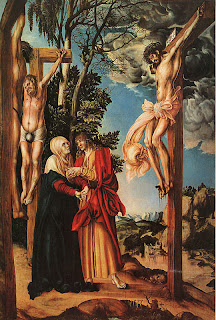I'm very pro Catholic Schools because my wife, Jean, is a Loreto Old Girl....a LOG!...and I'm quite satisfied with the product! My daughter, Caroline, spent much of her education at Holy Cross and Springfield Convent in Cape Town and they were the best schools she ever went to. I know that adults love to tell horror stories about malevolent nuns in Catholic Schools but it certainly never applied to anyone in my family and both women refer to their school days with affection and gratitude.
When Loreto celebrated 120 years in South Africa I was privileged to MC the event and attended the final committee meeting before the event. Halfway through the meeting the Convent front door bell rang and every single old girl, no matter what age, leaped to her feet to answer the door! Maybe there is a degree of brainwashing after all!
 Modern Catholic Education is of such value to South Africa and the transformation of children from disadvantaged backgrounds into questioning, educated young people and the opportunities created for them never ceases to amaze me. There are expensive Catholic Schools and there are Catholic Schools where the vast majority of pupils pay little or nothing at all but they are all members of the same family under God.
Modern Catholic Education is of such value to South Africa and the transformation of children from disadvantaged backgrounds into questioning, educated young people and the opportunities created for them never ceases to amaze me. There are expensive Catholic Schools and there are Catholic Schools where the vast majority of pupils pay little or nothing at all but they are all members of the same family under God.
Mark Potterton is the Director of the Catholic Institute of Education and here are their aims and objectives:
- An Associate Body of the Southern African Catholic Bishops Conference
- NGO
- Member of the International Office of Catholic Education, Brussels (OEIC).
What are our key programme areas?
- Religious and values education – Catholic identity
- Policy analysis and advocacy
- HIV Aids mitigation
- Education access
- Pastoral care
- Skills development (aimed at out-of-school youth).
How are we governed?
The CIE Board, which meets four times a year, endorses the principles in the
Code of Corporate Practices and Conduct recommended by the King Commission.
The Board adopts the principles of openness, integrity and accountability.
The Board consists of 14 members and is responsible for policy and overall
governance, with the day-to-day management delegated to the Director.
Code of Corporate Practices and Conduct recommended by the King Commission.
The Board adopts the principles of openness, integrity and accountability.
The Board consists of 14 members and is responsible for policy and overall
governance, with the day-to-day management delegated to the Director.
Members of the Executive Committee, which meets four times a year,
are appointed for the specific knowledge and skills they bring to the Committee.
They are, amongst other things, responsible for monitoring:
are appointed for the specific knowledge and skills they bring to the Committee.
They are, amongst other things, responsible for monitoring:
- financial spending according to the budget;
- implementing strategies and policies as approved by the Board;
- adherence to the work programme;
- adequacy of resources and staff;
- compliance with relevant legislation; and
- any special investigations undertaken by the organisation.
Do we have adequate financial systems in place?
Systems of financial and internal control are in place to provide reasonable
assurance that the assets are safeguarded, and that liabilities and working
capital are efficiently managed. The organisation is externally audited twice a year.
assurance that the assets are safeguarded, and that liabilities and working
capital are efficiently managed. The organisation is externally audited twice a year.
What is our project management experience?
We have managed, and still manage, multi-million rand buildingprojects in both South Africa and Lesotho.
We manage and support a programme that supports 900 orphans and
vulnerable children in independent schools and 10 000 children in public schools.


















